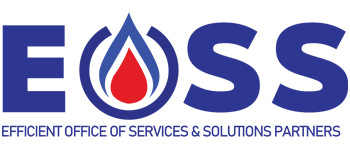After all, when one family member struggles with alcohol abuse, family relations become characterized by dishonesty. Your inability to assert power over alcohol forces you to lie about your use of alcohol and even your whereabouts. This can lead to a cycle of lies, both for you and for the family members who attempt to understand or excuse your behavior. The family can become totally controlled by diseased thinking. Although the illusion of control may continue, their lives become unmanageable, because alcohol is really in control.
When you’re able to accept the fatal progression of your alcohol use disorder, you can’t continue living in denial. This attitude will bring immediate and practical results. You must first adopt attitudes and actions of being honest and sacrificing your time and energy to help yourself and other sufferers. Recognizing your powerlessness over alcohol isn’t a sign of weakness but rather an acknowledgment of the addiction’s strength. Many who struggle with alcoholism have tried to control or moderate their drinking, only to find themselves repeatedly falling into the same destructive patterns.
Step Programs and Addiction Recovery
Even so, the 12 Principles of AA have remained its central guiding influence. Many people suffering from alcoholism continue to find success in recovery by participating in AA’s program. With the publication of the organization’s principles and writings, word began to spread about its success. Once AA managed to help 500 people achieve sobriety, it attracted a more national audience. By 1950, the organization could boast of having helped 500,000 people overcome their dependence on alcohol.
Have you ever anticipated an event so much that you just waited around in bed all day until it came? Individuals who depend on a substance cannot focus on other tasks and are consumed with their next meeting time with the particular substance. Alcoholics Anonymous (AA) operates under a set of 12 steps to achieve daily recovery. AA is a group of fellow recovering alcoholics who use the 12 steps and sponsorship to hold you accountable and offer you a daily reprieve from alcohol dependency. For many people, simply getting to the first step of AA is harder than any other part of the recovery process. In fact, you might need to experience a personal crisis before you feel ready to go to an AA meeting.
The Power in the First Step: Accepting Powerlessness
As we go through the process of Step One, we are moving from a lack of awareness into an awareness of the reality of this disease and the possibility of change. We are beginning to believe that we are capable of living in a different way. Of course, there are many other books and resources available on the 12-step program, and what works best for one person may not work for another. It can be helpful to explore different options and find what resonates with you personally. Practicing your sobriety with the principle of love means that you’re not just existing for yourself but in service to the people you care about.
Acknowledging powerlessness over alcohol and drugs can be liberating for many people. It frees you up to focus your time and energy on things that are within your control. Perhaps you are familiar with the words of the Serenity Prayer, which is commonly recited at AA meetings. It includes the line, “Grant me the ability to accept what I cannot change; courage for the things I can; and wisdom to know the difference.” Being powerless over addiction does not mean you are powerless in general. In our recovery programs for men in Colorado, we work on this step. While admitting powerlessness over a substance may seem at odds with efforts to hold addicts responsible for their behaviors, the opposite is true.
List of Examples of Powerlessness in Sobriety
If one of our articles is marked with a ‘reviewed for accuracy and expertise’ badge, it indicates that one or more members of our team of doctors and clinicians have reviewed the article further to ensure accuracy. This is part of our ongoing commitment to ensure FHE Health is trusted as a leader in mental health and addiction care. At the same time, however, I’m wary of government intervention to suppress social media or smartphone access for children. The people best positioned to respond to their children’s online life are parents, not regulators, and it is parents who should take the lead in responding to smartphones. Otherwise, we risk a legal remedy that undermines essential constitutional doctrines that protect both children and adults. MARR Addiction Treatment Centers specialize in treating individuals whose lives have been destroyed by addiction.
We offer renowned clinical care and have the compassion and professional expertise to guide you toward lasting recovery. Humans naturally gather together, which is why group therapy remains a powerful therapeutic tool for alcohol addiction. Further, groups with trained leaders, such as AA sponsors, can positively promote substance abuse recovery. These include reducing isolation, providing a support system, and witnessing the healing of others. You might not be ready to take the first step at your first AA meeting, and that’s okay. It’s not easy to admit our inability resist alcohol or internal humiliation, but you’re not alone.
Virtual Services
Last year, we expanded our services to include robust mental health treatment, a new outpatient location, and specialized programming for our nation’s veterans, with more to come this year! We are visually recognizing our growth with a unified look that better reflects who we are today and the passion we have for helping everyone with their addiction and mental health recovery journeys. A person with alcohol addiction is powerless over alcohol because his or her behavior changes in ways that would not happen when sober.

